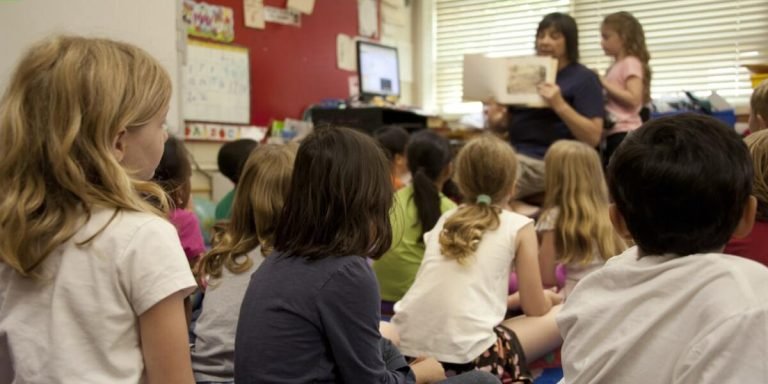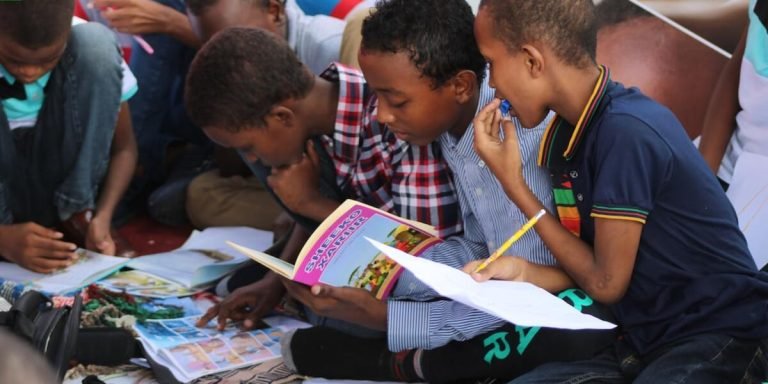1st Grade Age: Understanding the Ideal School-Going Time for Kids
Understanding the right time to send your child off to school can be a confusing task for new parents. The term “1st grade age” often stirs up questions like, how old should my kid be when they first experience an educational setting? This simple question has complex answers that take into account various factors beyond just chronological years.
It’s crucial for young learners’ success in elementary school education that they join at an appropriate age. Taking this step too early or late may affect their academic progress and social development amongst peers. Hence, it becomes essential for every responsible parent to understand what the optimal “1st grade age” truly is.
Did you know?
Did you know that in Finland, often lauded for its exceptional education system, children don’t start formal school until the age of seven? Their focus pre-7 is on learning through play and developing social skills.
Understanding the Transition into Elementary School: Preparing Your Child for 1st Grade
The transition from kindergarten to elementary school is a significant milestone in every child’s life and it occurs at the crucial 1st grade age. This stage paves the way for your little one’s first steps into a structured educational environment focusing on building fundamental reading, writing, and mathematics skills. It can be both an exciting and nerve-wracking period as parents try their best to prepare their children mentally, emotionally, and academically.
Firstly let’s understand this change intimately where we will focus specifically on preparing your kid for 1st grade in terms of new learning patterns they are about to experience. Elementary education differs vastly from that delivered during preschool stages because here our learners start following more formalized instructions than play-based learning tactics utilized earlier by educators.
At roughly six or seven years old depending upon when you start schooling your offspring; youngsters step foot into a world filled with multiple subjects each week compared against singular subject days back in Kindergarten which allows them to explore various disciplines encouraging cognitive development while also nurturing socialization leading towards all-round growth prospects among young minds especially those at 1st-grade age.
The Significance of Age in 1st Grade Readiness
The transition from kindergarten to 1st grade is a significant step in your child’s educational journey. At this stage, understanding the significance of age as it pertains to 1st-grade readiness becomes crucial for parents and educators alike.
During these formative years, often around the “1st grade age” ranging typically between six-and-seven-years-old, children undergo drastic developmental changes. These can vary widely across cognitive capabilities, social skills and physical development demonstrating why matching their maturation pace with academic demands results in fruitful learning outcomes.
Higher Cognitive Skills – By this time kids start exhibiting advanced language usage along with problem-solving abilities – two paramount elements synonymously associated with success during first-grade classes.
Physical Mileage- Gross motor skills improve dramatically leading them capable handling more intricate tasks like tying shoelaces or catching ball mid-air becoming strong indicators signaling readiness for embracing larger challenges head on during initial runs within elementary school premise.
Developmental Milestones for Children at 1st Grade Age
As your child prepares for the exciting leap into 1st grade, understanding developmental milestones associated with this age range helps parents and educators align expectations. As we journey through a child’s transition to elementary school in 2023, let’s explore some of these crucial markers.
Children at first-grade age typically fall between six and seven years old – a period filled with rapid cognitive, physical, social-emotional growth. This rate varies from one kid to another but observes certain common patterns worth noting.
Physically too, slight changes are noticeable: Improved hand-eye coordination enables activities like catching balls or cutting shapes more manageable than before.
Progress is seen not only on an individual level but socially too: Kids now tend to become part of group play rather than just parallel playing experienced previously—a clear indicator showing comfort while interacting in larger peer groups.
children begin distinguishing emotions better leading them towards expressing feelings using words instead of throwing tantrums- A critical evolution that aids communicating complex thoughts effectively.
Navigating the Basics of 1st Grade Curriculum and Expectations
As our youngsters embark on their educational journey, the 1st grade becomes a crucial milestone. Typically corresponding to the ages of six and seven, this phase signifies an important transition from kindergarten’s play-based learning model towards more structured academic education. It is at this age that children are introduced to fundamental concepts in various subjects such as English Language Arts, Mathematics, Social Studies and Science.
The curriculum for 1st-grade pupils is meticulously designed by experts keeping developmental patterns typically observed amongst kids aged six or seven in mind. The aim is not just imparting knowledge but also developing cognitive skills like logical thinking, comprehension abilities and problem-solving instincts — critical components required for higher grades’ curriculums as well.
In terms of expectations for first graders; independence stands right up there along with capability development across three key areas – academics, social-emotional growth area (interacting appropriately with peers), personal responsibility (organizing oneself). Understanding these aspects will help parents align their support better with what’s expected at school leading to balanced progression throughout those ever-important elementary years.
Key Academic Skills Your Child Will Learn at 1st Grade Level
In the first grade, your child will start to build upon the fundamental skills they’ve already developed in kindergarten. This leap from simple learning into more structured education forms a crucial part of elementary school education and usually aligns with 1st-grade age – typically six or seven years old.
One essential academic skill is reading fluency for which building blocks are laid down at this level. Your child will learn to recognize words by sight without having to sound them out letter-by-letter. They’ll be introduced to more complex phonics and word patterns too leading towards improved comprehension.
Mathematics takes on a new depth as well during 1st grade; Children delve deeper into topics such as addition and subtraction while also being introduced concepts like place value, measuring units, telling time etcetera . The aim here? Developing problem-solving abilities aided further by interactive games that make applying these math constructs fun!
Science comes alive at this stage too- children get their hands dirty exploring plant life cycles , animal habitats over various seasons among other things bringing previously theoretical knowledge closer home through experiments real world observations .
Writing progresses significantly in 1st grade: Students begin stringing together sentences forming very short paragraphs thereby enhancing written expression vocabulary expansion . Grammar punctuation come play now adding sophistication their communication style.
Social and Emotional Competencies in the First Year of Elementary Education
Children entering 1st grade are usually around the age of six or seven. This is a unique time in their development, as they transition from preschool and kindergarten to more structured learning environments. Here’s what you can expect regarding social and emotional competencies during this crucial period.
Firstly, children at this stage begin to develop stronger self-awareness skills. They start identifying emotions within themselves and others more accurately than before while expressing their thoughts with improved clarity. It isn’t uncommon for first graders to voice out when they feel happy after scoring well on a test or sad if denied playtime outside due to unfavorable weather conditions.
Secondly, decision-making abilities gradually improve amongst children of 1st-grade age too. While not highly complex decisions just yet—choosing between sharing toys or hoarding them all—is an important formative step forward nonetheless.
Thirdly, empathy plays an essential role in shaping kids’ overall personality during the first year of elementary education (in actuality it always does). Children learn that being kind earns them friends which nurtures cooperative behavior – a vital skill for succeeding in life beyond school boundaries!
Lastly but importantly, responsibility gets its rightful place under the sun among these young learners’ lives too! By assigning simple tasks like managing lunchboxes or maintaining cleanliness around personal desks – we tend teachers subtly foster accountability culture into curious minds right from day one (childhood education).
Enhancing Home Support for Students Starting Elementary School
Incorporating home support for students who are transitioning into their elementary school years, specifically those stepping into the 1st grade age bracket, is paramount. In this transition phase at around six to seven years old in most cases as of 2023, children tend to develop a more structured understanding of learning processes and start responding actively to educational stimuli. Therefore, it’s crucial that parents or guardians reinforce these developments outside the formal education setting.
Home-based reinforcement doesn’t necessarily mean adding extra homework or pressuring your first-grader with additional academic tasks. The core aspect should revolve around encouraging curiosity and exploration – two inputs that can significantly foster cognitive growth during early childhood schooling years. This essentially includes practical experiences which add value by making connections between classroom learnings and real-life situations.
Remember, enduring patience plays an indispensable part in supporting early-age learners’ efforts; each child has individual capabilities when it comes to grasping new concepts or skills presented at school. Praise them often about their effort rather than just results – shaping mindsets like these would help lay down resilient foundations for comprehensive development throughout elementary education stages over time.
Creating an Effective Learning Environment at Home for a First Grader
For many parents, navigating the educational landscape for their 1st grade age child can be a daunting task. However, creating an effective learning environment at home for your young scholar can bridge the gap between education and growth beyond school hours.
Firstly, it’s crucial to understand that structure is key when setting up a conducive space. Dedicate specific areas in your home where study and homework will take place – this helps set clear expectations with children about work-time versus playtime.
Next comes crafting a routine suitable to their age group. The first graders need consistency; therefore establish regular reading times or math practice slots within each day so they get used accommodating these activities into daily life.
Do remember that elementary education thrives on inclusivity hence involve them in selecting books of interest from online resources or local library visits and encourage discussions post-reading sessions as well! They might surprise you with insights!
Learning should also include hands-on experiences which spark curiosity amongst 1st graders’ minds thereby deemphasizing rote-learning. Construct simple science experiments at home using everyday materials like vinegar-baking soda volcanoes or growing plants – opportunities are endless!
Strategies to Reinforce Classroom Learning During the Pivotal 1st Grade Year
Understanding the 1st grade age is crucial for parents who are keen on reinforcing classroom education at home. This stage often marks a significant shift in children’s learning as they start to explore various subjects and topics more deeply.
To enhance your child’s elementary school experience, several strategies can be implemented during this pivotal year.
Firstly, create an organized study area at home. Providing a conducive environment that encourages focus can have profound effects on their ability to grasp new concepts taught in first-grade classrooms.
Additionally, engaging them in daily reading activities strengthens literacy skills—one of the key areas focused upon during this transitional phase from kindergarten to elementary schooling.
Moreover, being involved with their schoolwork without countering teachers’ methods helps build consistency between teaching approaches used both at home and school – creating a seamless learning continuum beneficial for kids’ academic growth.
Conclusion
In essence, “1st grade age” is more than just a milestone; it’s the start of an adventurous academic journey for your young ones. As parents and educators alike, our duty lies in ensuring we guide them through this critical phase with preparation, patience and understanding.
So whether you’re waving goodbye to your excited little one on their first day or puzzling over complex homework assignments, remember – every challenge faced now is building toward skills they will use all their life. For more insights into childhood education or support as a parent/educator navigating these exciting times, feel free to explore our website further. Happy learning!







